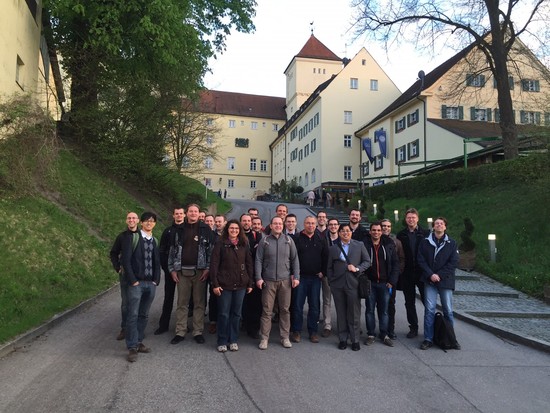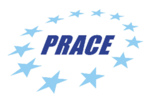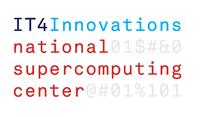Sponsor

Goals
This workshop organized by VI-HPS, LRZ (new VI-HPS member since April 2018) and IT4Innovations as a PRACE training event will:
- give an overview of the VI-HPS programming tools suite
- explain the functionality of individual tools, and how to use them effectively
- offer hands-on experience and expert assistance using the tools
To foster the Czech-German collaboration in high performance computing, a contingent of places has been reserved for participants from the Czech Republic.
Programme Overview
The detailed program will be available on the VI-HPS training web site.
Presentations and hands-on sessions are planned on the following topics
- Setting up, welcome and introduction
- Score-P instrumentation and measurement
- Scalasca automated trace analysis
- TAU performance system
- Vampir interactive trace analysis
- Periscope/PTF automated performance analysis and optimisation
- Extra-P automated performance modeling
- Paraver/Extrae/Dimemas trace analysis and performance prediction
- [k]cachegrind cache utilisation analysis
- MAQAO performance analysis & optimisation
- MUST runtime error detection for MPI
- ARCHER runtime error detection for OpenMP
- JUBE script-based workflow execution environment
- ... and potentially others to be added
A brief overview of the capabilities of these and associated tools is provided in the VI-HPS Tools Guide.
The workshop will be held in English and run from 09:00 to not later than 18:00 each day, with breaks for lunch and refreshments. For participants from public research institutions in PRACE countries, the course fee is sponsored through the PRACE PATC program. All participants are responsible for their own travel and accommodation.
A social event for participant and instructor networking is planned for the evening on Tuesday 24 April, consisting of a guided tour of the Weihenstephan Brewery sponsored by Megware followed by a self-paid dinner at the brewery restaurant.
Classroom capacity is limited, therefore priority may be given to applicants with parallel codes already running on the workshop computer system (CoolMUC-3), and those bringing codes from similar Xeon Phi x86 cluster systems to work on. Participants are therefore encouraged to prepare their own MPI, OpenMP and hybrid MPI+OpenMP parallel application codes for analysis.

Picture: Participants of the 21st VI-HPS Tuning Workshop at LRZ in April 2016.
Programme in Detail (provisional)
| Day 1: | Monday 23 April | |
| 08:30 | (registration & set-up of course accounts on workshop computers) | |
| 09:00 | Welcome
|
|
| 10:30 | (break) | |
| 11:00 | mpiP lightweight MPI profiling [Martin Schulz, TUM]
|
|
| 12:30 | (lunch) | |
| 13:30 | Hands-on coaching to apply tools to analyze participants' own code(s). | |
| 17:30 | Review of day and schedule for remainder of workshop | |
| 18:00 | (adjourn) | |
| Day 2: | Tuesday 24 April | |
| 09:00 | Score-P instrumentation & measurement toolset [Ronny Tschüter, TUD]
|
|
| 10:30 | (break) | |
| 11:00 | Score-P analysis scoring & measurement filtering [R. Tschüter, TUD]
|
|
| 12:30 | (lunch) | |
| 13:30 | Hands-on coaching to apply tools to analyze participants' own code(s). | |
| 17:30 | Review of day and schedule for remainder of workshop | |
| 18:00 | (adjourn) | |
| 19:30 | Social event: Guided tour of Weihenstephan Brewery and dinner | |
| Day 3: | Wednesday 25 April | |
| 09:00 | Scalasca automated trace analysis [Ilya Zhukov, JSC]
|
|
| 10:30 | (break) | |
| 11:00 | Paraver tracing tools suite [Judit Giménez & Lau Mercadal, BSC]
|
|
| 12:30 | (lunch) | |
| 13:30 | Hands-on coaching to apply tools to analyze participants' own code(s). | |
| 17:30 | Review of day and schedule for remainder of workshop | |
| 18:00 | (adjourn) | |
| Day 4: | Thursday 26 April | |
| 09:00 | JUBE workflow execution environment [Thomas Breuer, JSC]
|
|
| 10:30 | (break) | |
| 11:00 | TAU performance system [Sameer Shende, UOregon]
|
|
| 12:30 | (lunch) | |
| 13:30 | Hands-on coaching to apply tools to analyze participants' own code(s). | |
| 17:30 | Review of day and schedule for remainder of workshop | |
| 18:00 | (adjourn) | |
| Day 5: | Friday 27 April | |
| 09:00 | MUST MPI runtime error detection [Joachim Protze, RWTH]
|
|
| 10:30 | (break) | |
| 11:00 | Kcachegrind cache analysis [Josef Weidendorfer, LRZ]
|
|
| 12:30 | (lunch) | |
| 13:30 | Hands-on coaching to apply tools to analyze participants' own code(s). | |
| 17:00 | (adjourn) |
Hardware and Software Platforms
CoolMUC-3: KNL-based x86 Linux cluster system:
- 148 compute nodes each with single Intel Xeon Phi 7210-F 'Knights Landing' MIC processors (1.3GHz, 64 cores per processor, 4 hardware threads per core) and 96GB RAM and 16GB HBM
- cluster modes: quad, snc4, a2a
- memory modes: flat, cache, hybrid
- network: Intel OmniPath interconnect
- parallel filesystem: GPFS (SCRATCH & WORK)
- software: SLES12-based GNU/Linux, Intel MPI; Intel, GCC and other compilers; SLURM batchsystem
The local HPC system CoolMUC-3 is the primary platform for the workshop and will be used for the hands-on exercises. Course accounts will be provided during the workshop to participants without existing accounts. Other systems where up-to-date versions of the tools are installed can also be used when preferred, though support may be limited and participants are expected to already possess user accounts on non-local systems. Regardless of whichever systems they intend to use, participants should be familiar with the relevant procedures for compiling and running their parallel applications (via batch queues where appropriate).
Registration
Via https://events.prace-ri.eu/event/648/registration/register
Location, Transport and Accommodation
The workshop will be held in Leibniz Rechenzentrum on the university campus outside Garching bei München, approximately 25 min north from the city centre of Munich. The U-bahn line U6 (station: Garching-Forschungszentrum) provides direct connection from the campus area to both Munich and Garching.
Getting to/from LRZ
It is recommended to choose a hotel in Garching or Munich city centre and use the U-bahn to reach LRZ.
Accommodation in Garching
Accommodation in Munich







